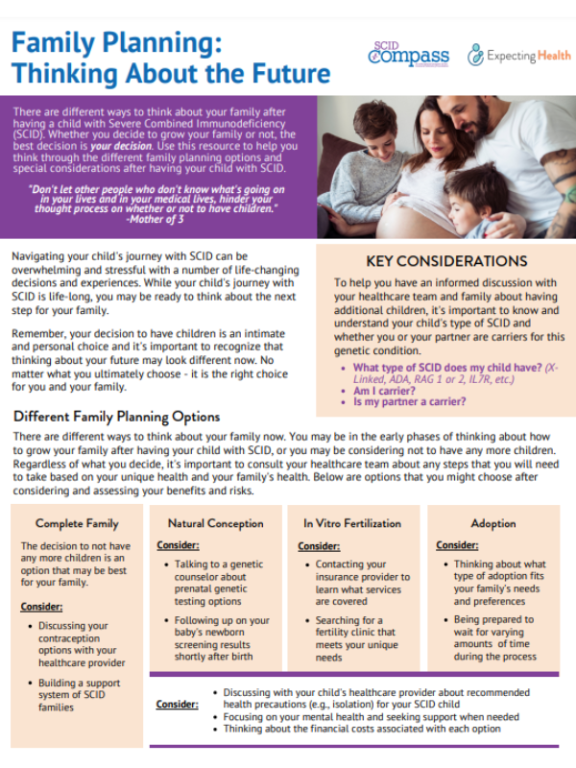
There are different ways to think about your family after having a child with SCID. Most types of SCID are passed down to children from their parents, so there is a possibility that siblings will also be born with SCID. Parents must consider what it would mean for the family long-term.
Parents of children with SCID should seek genetic counseling so that they are aware of the risks of future pregnancies and can make informed decisions about childbearing. They must also consider the costs associated with the various options.
Options that some families pursue include:
- Testing during the pregnancy (pre-natal testing) to find out if the baby is affected by SCID.
- Adoption.
- In vitro fertilization (IVF) with pre-implantation genetic testing (PGT).
It should be emphasized that there is no right or wrong decision about having more children. The decision must be made in light of the following factors:
- The family structure.
- The basic philosophy of the parents.
- Parents' religious beliefs and background.
- Parents' perception of the impact of the illness upon their lives and the lives of all the members of the family.
In addition, each family may have their own factors to consider, which could include the following:
- The uncertainty of finding a suitable HSCT donor again.
- The possibility of choosing gene therapy as an option.
- The effects of going through isolation again.
- Increased risk of infection to a newborn child with SCID who has school-age siblings.
- Financial considerations.
This worksheet can help you think through the different family planning options and special considerations.










